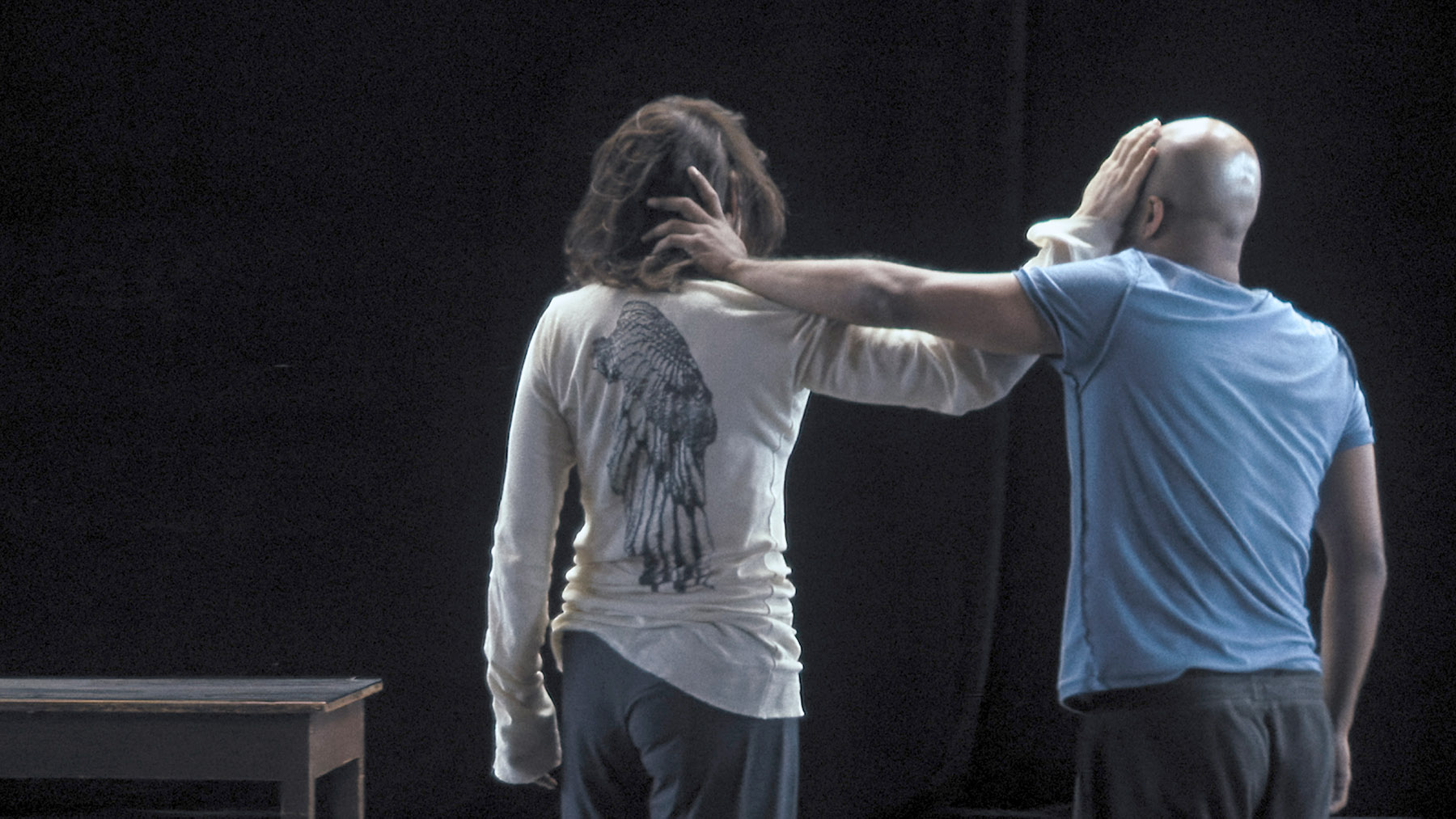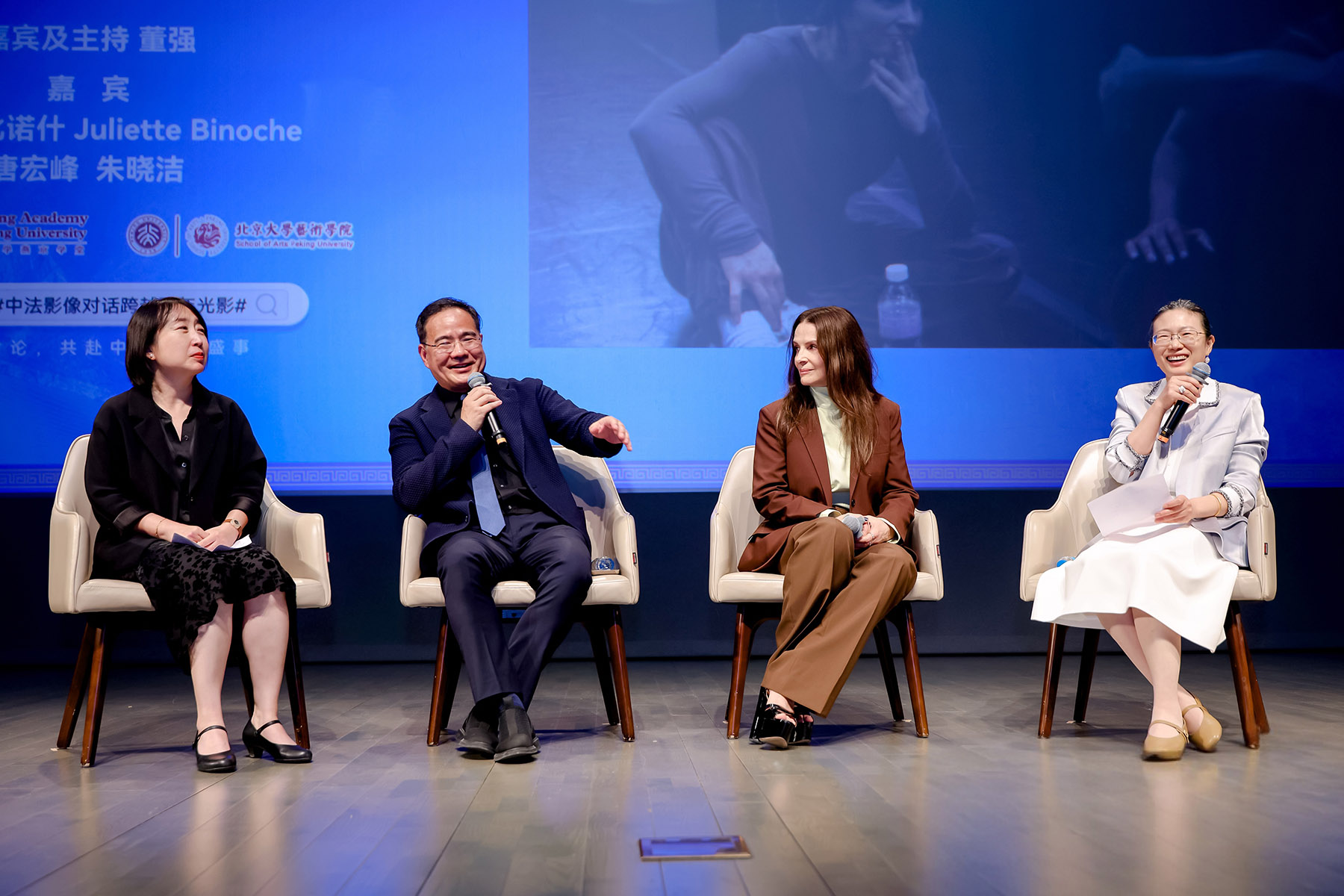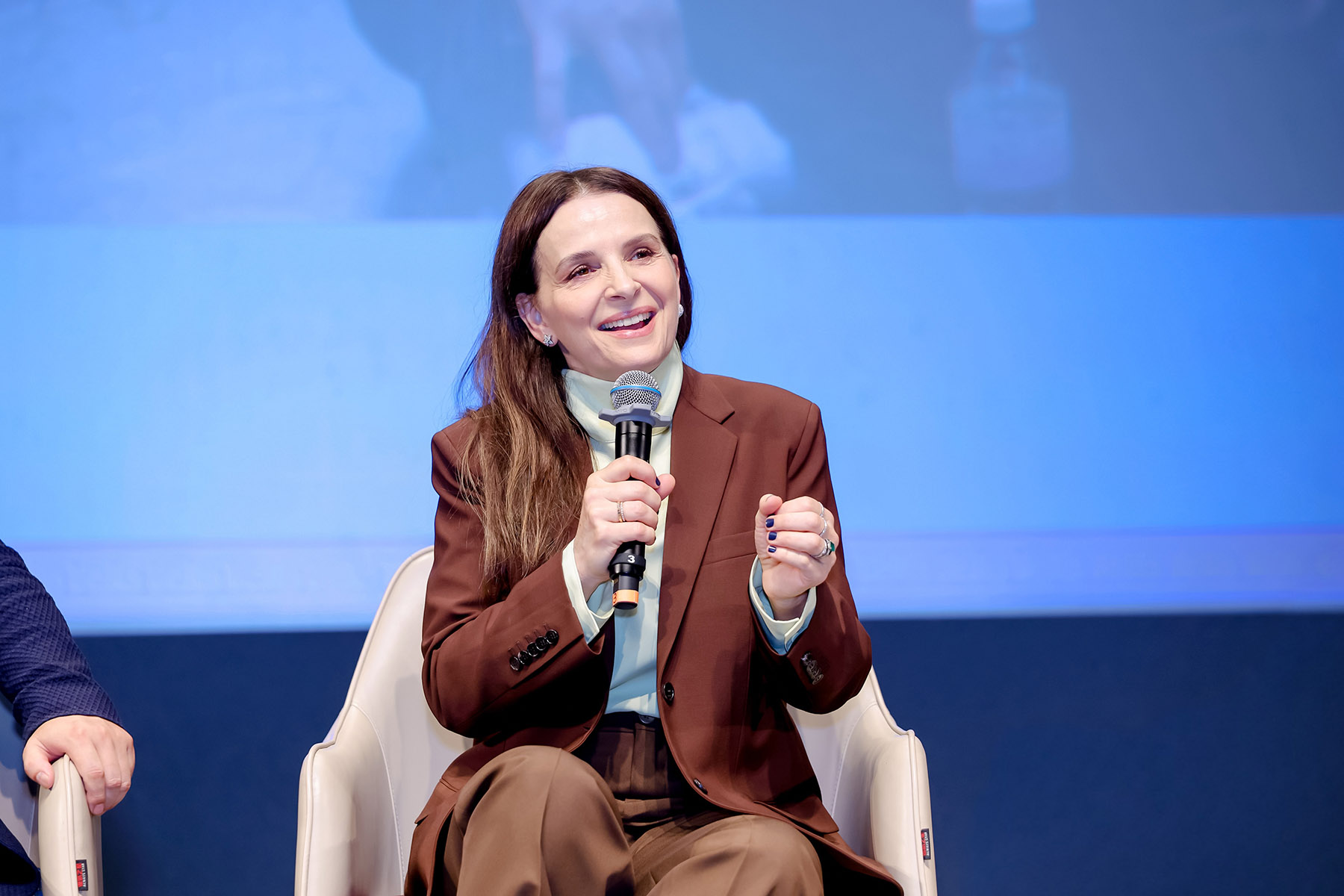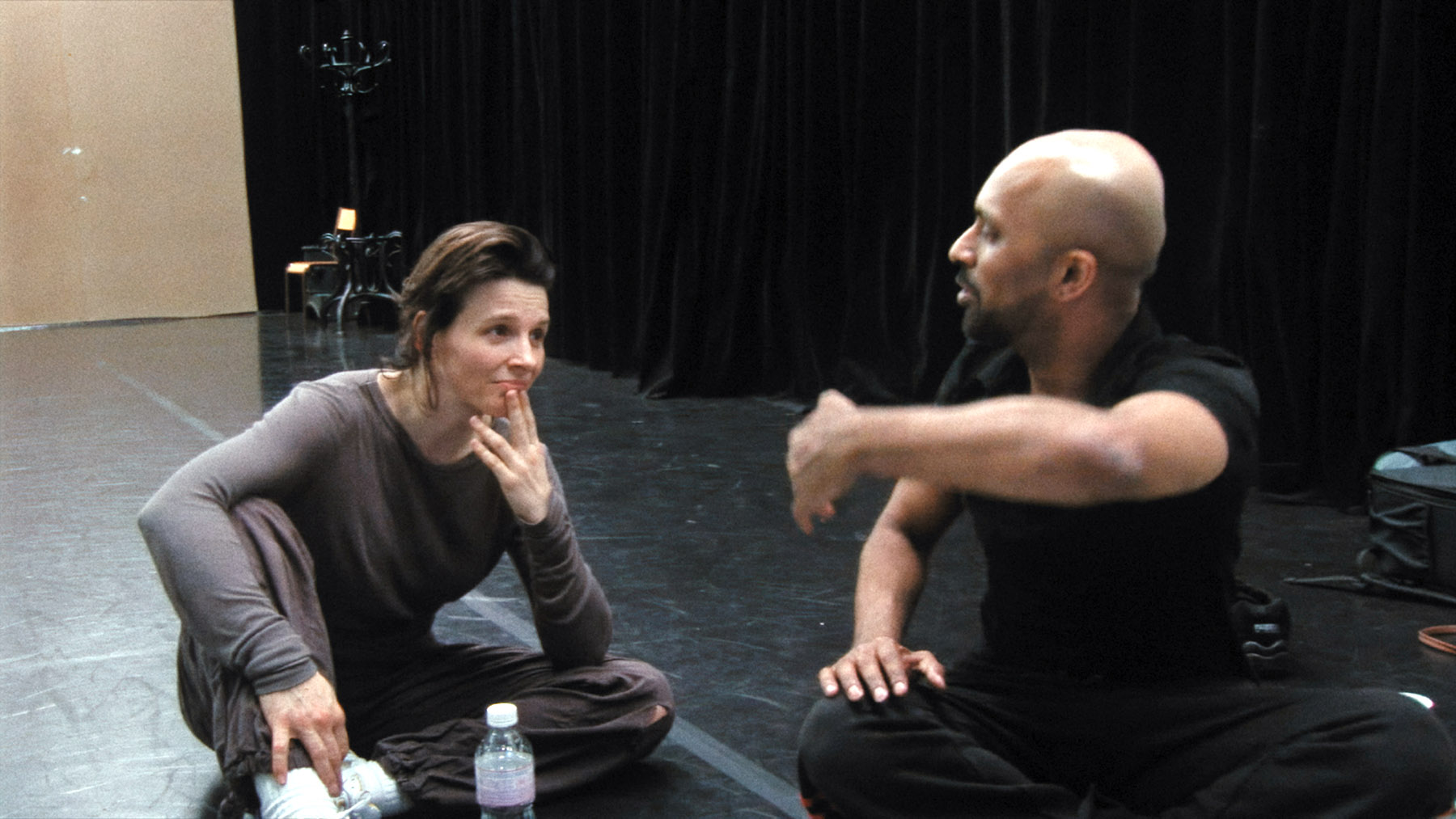French actress explores creativity and connection in Beijing, sharing insights on film, movement and mindfulness, Xu Fan reports.

After a full afternoon of sharing insights with scholars at Peking University and an intensive series of interviews, French actress Juliette Binoche had reason to look tired. Her schedule had been relentless — working until midnight before catching a 5 am flight out of Beijing.
Yet, Binoche — one of the most internationally known French stars, who has claimed a grand slam of the world's most prestigious acting honors, from an Oscar to the best actress awards at all three top European international film festivals in Cannes, Venice and Berlin — remained as poised and focused as if her day had just begun.
Leaning back against a sofa cushion, her eyes still bright, she gently patted the seat beside her with a friendly gesture. "Do you want to sit here?" she offered warmly. This began the China Daily interview, in which she spoke about her fascination with the country and how she has benefited from the centuries-old legacies of acupuncture and qigong (inner breathing).
READ MORE: French cuisine competes at Cannes in 'The Pot-au-Feu'
"I definitely love China. I've been here in different circumstances, discovering the country," she says.
Having once visited mountains and temples on an earlier trip, Binoche shares that her understanding of Chinese culture — particularly Taoist values concerning life and death — came partly from Sandrine Chenivesse, the French anthropologist and first wife of director Jiang Wen.

However, even before her first trip to Beijing in 2009, Binoche had already discovered a connection to Chinese traditions through acupuncture. "I do acupuncture every month because it's the greatest form of prevention. It helps you understand how the inner and outer are related — the emotions and the organs," she says.
For the 61-year-old actress, her most recent trip to the country to attend the 2025 Beijing Culture Forum has turned into both a moment of cultural exchange and a celebration for her many loyal movie fans.
As part of the forum's subsidiary event highlighting Chinese and French cinema, Binoche's directorial debut In-I in Motion made its Asian debut in Beijing, with screenings at Peking University and the China Film Archive on Sept 23.
The documentary is supported by the global luxury group Kering, through its Women in Motion program, an initiative launched in 2015 and continuing its commitment to amplifying women's voices in film and the arts.
"With shared values, Kering is honored to help bring this bold artistic experiment to a wider audience, celebrating a woman filmmaker, a trailblazer, a true artist who has been continuing to inspire the world through her nonstop exploration," says Laurent Claquin, group chief brand officer of Kering.
With a running time of 156 minutes, the film documents Binoche's stage collaboration with British dancer and choreographer Akram Khan. The movie traces how the pair step away from their established careers to embark on a daring artistic experiment in 2007, cocreating In-I — a boundary-pushing performance that toured the world the following year with 100 shows.

With her elder sister Marion Stalens serving as cinematographer, Binoche collaborated with three editors to distill 170 hours of rehearsal and performance footage into a single feature.
Recalling that her transition from actress to director began with the 2008 dance piece, Binoche says she had never imagined she would dance in her life until she was encouraged by a facialist and massage therapist during her stay in London — while she was working with British director Anthony Minghella, known for the Oscar-sweeping blockbuster The English Patient.
After being introduced to Khan's duet Zero Degrees, Binoche was captivated and an idea formed in her mind. "From the first day, he was showing me movements to follow as a dancer. But that's not what I wanted. I wanted to cocreate something, to exchange ideas, and learn through my own movement."
Over the following two years, Binoche and Khan worked together, spending nearly six months in rehearsals and using improvisation to explore the links between acting and movement. Interestingly, Binoche reveals that she practiced qigong with a Chinese master surnamed Wang to gain energy and protect her body from injury during performances.
Then, the two top artists embarked on a world tour to perform the show, staging it in multiple cities including Beijing and Shanghai. After one performance in New York, Binoche returned to her dressing room without even having time to change out of her orange stage costume. To her surprise, legendary American actor Robert Redford was waiting for her and suggested she turn the performance into a movie.
"So, I was wondering how I could do the film. … I didn't have any script. The film had to be made from the images I had. I soon began to believe it was better to show the creative process chronologically, so the audience could follow what was going on, as we were creating it all ourselves," she recalls.

Across a career spanning more than 60 films including classics such as Three Colors: Blue and Chocolat, the Paris-born actress has developed a distinct philosophy on portraying romance and emotion.
"As actors, we have to be ready to expose intimacy — to reveal hidden feelings. In a way, we help people reconcile the different parts of themselves that are often separated by upbringing, fears or the emotions we internalized as children," she says.
"When you watch a film, you can see these emotions and identify with them. You could call it a psychological process. We must speak about it because these feelings need to be embodied; they need to become a part of you in order to be transmitted to the audience," explains Binoche.
ALSO READ: Macao international film festival kicks off with Juliette Binoche
Even amid her busy routine, Binoche finds peace in simple tasks — cooking, cleaning the farm she purchased four years ago, and washing dishes.
When asked which categories of Chinese films appeal to her most, the star gives a candid reply: "What really attracts me is the genuine need to make a film. If it's 'made to please the audience', like a commercial film, if it's a movie made to make sure that many people would go and see it, I will not go to see it. I dislike that, it feels too commercial."
Contact the writer at xufan@chinadaily.com.cn


